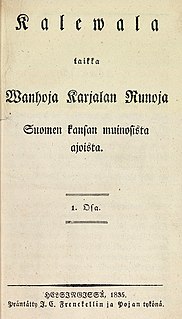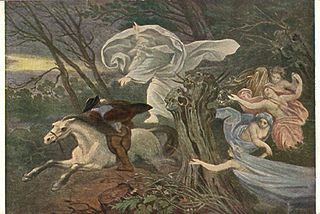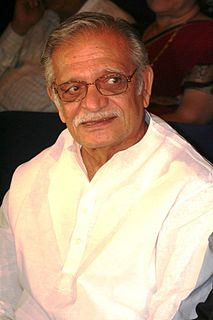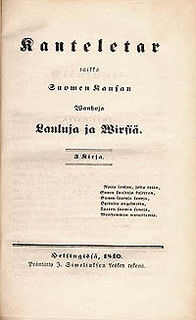Related Research Articles

The Kalevala is a 19th-century work of epic poetry compiled by Elias Lönnrot from Karelian and Finnish oral folklore and mythology, telling an epic story about the Creation of the Earth, describing the controversies and retaliatory voyages between the peoples of the land of Kalevala called Väinölä and the land of Pohjola and their various protagonists and antagonists, as well as the construction and robbery of the epic mythical wealth-making machine Sampo.

Maria Wisława Anna Szymborska was a Polish poet, essayist, translator, and recipient of the 1996 Nobel Prize in Literature. Born in Prowent, she resided in Kraków until the end of her life. In Poland, Szymborska's books have reached sales rivaling prominent prose authors', though she wrote in a poem, "Some Like Poetry", that "perhaps" two in a thousand people like poetry.

Andrew Barton "Banjo" Paterson, was an Australian bush poet, journalist and author. He wrote many ballads and poems about Australian life, focusing particularly on the rural and outback areas, including the district around Binalong, New South Wales, where he spent much of his childhood. Paterson's more notable poems include "Clancy of the Overflow" (1889), "The Man from Snowy River" (1890) and "Waltzing Matilda" (1895), regarded widely as Australia's unofficial national anthem.
A symphonic poem or tone poem is a piece of orchestral music, usually in a single continuous movement, which illustrates or evokes the content of a poem, short story, novel, painting, landscape, or other (non-musical) source. The German term Tondichtung appears to have been first used by the composer Carl Loewe in 1828. The Hungarian composer Franz Liszt first applied the term Symphonische Dichtung to his 13 works in this vein.

Paul-Marie Verlaine was a French poet associated with the Symbolist movement and the Decadent movement. He is considered one of the greatest representatives of the fin de siècle in international and French poetry.

Sara Teasdale was an American lyric poet. She was born Sarah Trevor Teasdale in St. Louis, Missouri, and used the name Sara Teasdale Filsinger after her marriage in 1914.
The works of J. R. R. Tolkien have served as the inspiration to painters, musicians, film-makers and writers, to such an extent that he is sometimes seen as the "father" of the entire genre of high fantasy.
Do not laugh! But once upon a time I had a mind to make a body of more or less connected legend, ranging from the large and cosmogonic to the level of romantic fairy-story... The cycles should be linked to a majestic whole, and yet leave scope for other minds and hands, wielding paint and music and drama. Absurd.

"Erlkönig" is a poem by Johann Wolfgang von Goethe. It depicts the death of a child assailed by a supernatural being, the Erlking, a king of the fairies. It was originally written by Goethe as part of a 1782 Singspiel, Die Fischerin.

"Namárië" is a poem by J. R. R. Tolkien written in Quenya, a constructed language, and published in The Lord of the Rings. It is subtitled "Galadriel's Lament in Lórien", which in Quenya is Altariello nainië Lóriendessë. The poem appears in one other book by Tolkien, The Road Goes Ever On.
This is a list of list of films.

The influence of Edgar Allan Poe on the art of music has been considerable and long-standing, with the works, life and image of the horror fiction writer and poet inspiring composers and musicians from diverse genres for more than a century.

Chess became a source of inspiration in the arts in literature soon after the spread of the game to the Arab World and Europe in the Middle Ages. The earliest works of art centered on the game are miniatures in medieval manuscripts, as well as poems, which were often created with the purpose of describing the rules. After chess gained popularity in the 15th and 16th centuries, many works of art related to the game were created. One of the best-known, Marco Girolamo Vida's poem Scacchia ludus, written in 1527, made such an impression on the readers that it singlehandedly inspired other authors to create poems about chess.
Nationality words link to articles with information on the nation's poetry or literature.

Floraleda Sacchi is an Italian harpist, composer and musicologist born in Como.

Sampooran Singh Kalra, known professionally as Gulzar, is an Indian poet, lyricist, author, screenwriter, and film director known for his works in Hindi cinema. He started his career with music director S.D. Burman as a lyricist in the 1963 film Bandini and worked with many music directors including R. D. Burman, Salil Chowdhury, Vishal Bhardwaj and A. R. Rahman. Gulzar also writes poetry, dialogues and scripts. He directed films such as Aandhi and Mausam during the 1970s and the TV series Mirza Ghalib in the 1980s. He also directed Kirdaar in 1993.

Kanteletar is a collection of Finnish folk poetry compiled by Elias Lönnrot. It is considered to be a sister collection to the Finnish national epic Kalevala. The poems of Kanteletar are based on the trochaic tetrameter, generally referred to as "Kalevala metre".

Poems and Songs of Middle Earth is a studio album of spoken-word poetry by English author J. R. R. Tolkien and art songs composed by British musician Donald Swann. On the first half of the album, Tolkien recites seven poems from or related to his fantasy novel The Lord of the Rings (1954–55). The second half is a performance of Swann's song cycle The Road Goes Ever On, which sets selections from Tolkien's verse to music. The vocalist William Elvin sings The Road Goes Ever On with piano accompaniment by Swann. Caedmon Records issued the album on 18 October 1967 in the United States, then on 28 March 1968 in the United Kingdom. Its release coincided with the publication of The Road Goes Ever On as a book of sheet music with commentary and illustration by Tolkien.

The music of Middle-earth consists of the music mentioned by J. R. R. Tolkien in his Middle-earth books, the music written by other artists to accompany performances of his work, whether individual songs or adaptations of his books for theatre, film, radio, and games, and music more generally inspired by his books.
References
- 1 2 John Schaefer (July 20, 2009). "Hearing a Good Book". Soundcheck . Retrieved 2009-07-20.[ permanent dead link ]